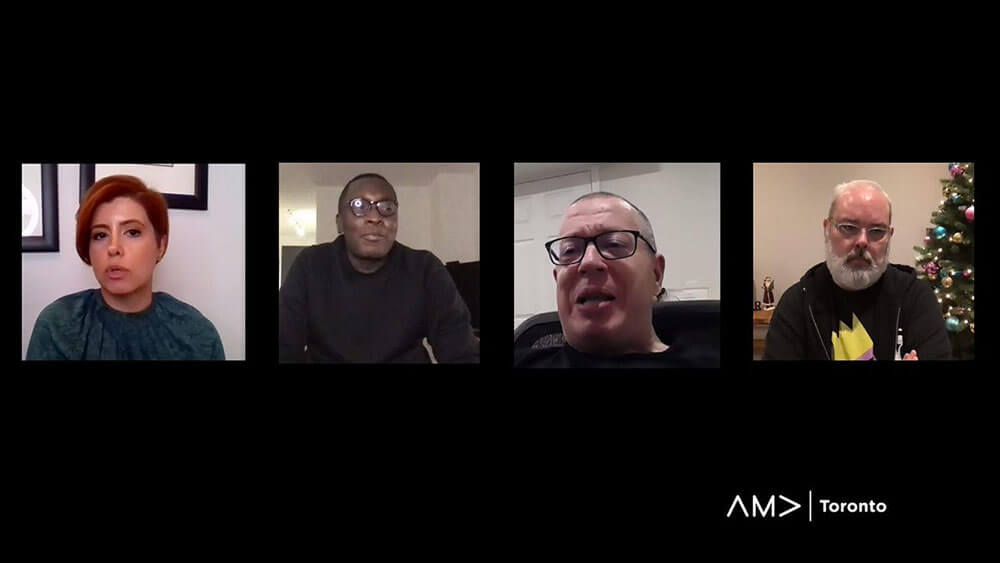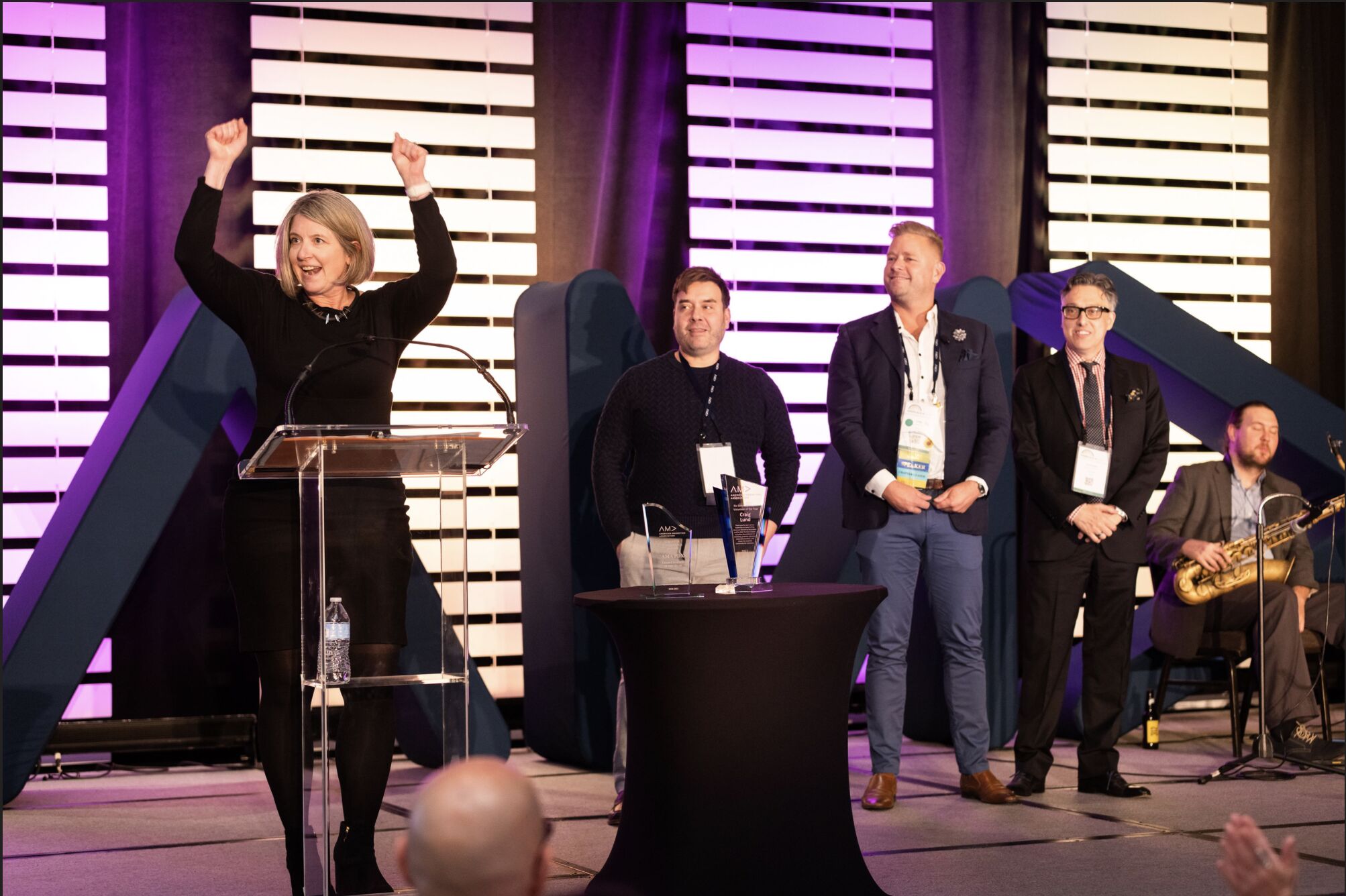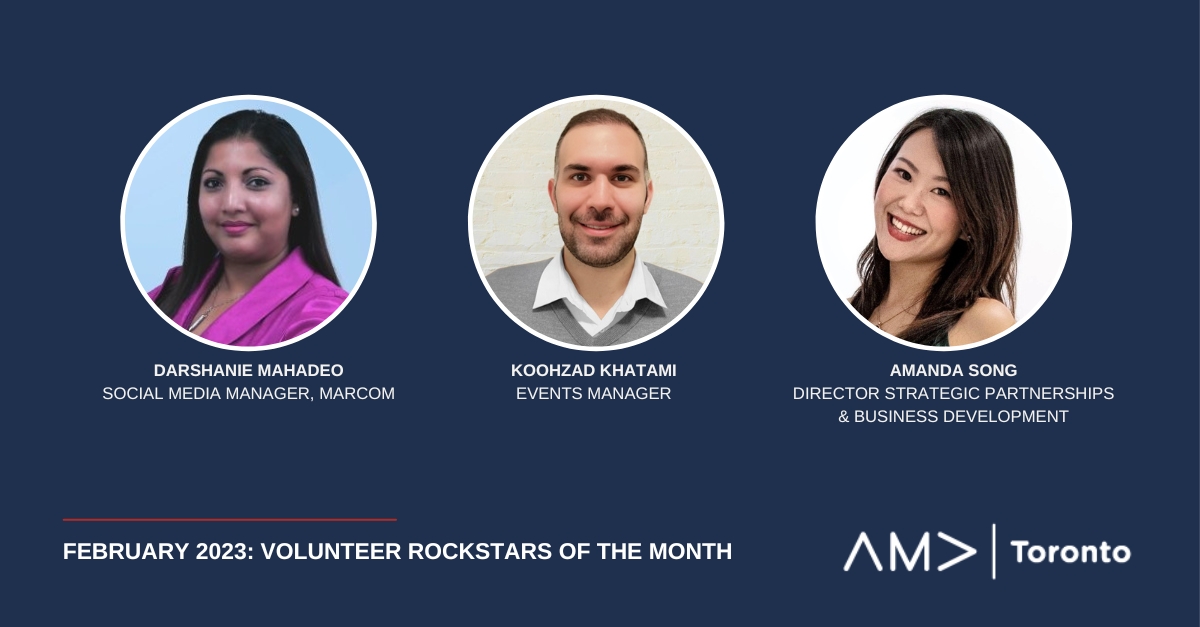Canada has embraced diversity and inclusion as a fundamental tenet of our core national values. Still, many Canadians continue to experience ongoing discrimination in the workplace. As organizations build out and implement their diversity, equity and inclusion (DEI) initiatives, they are tackling issues that include challenging the status quo, creating diverse teams, and addressing inherent biases in decision-making and processes. The AMA Toronto is proud to host a series of MNG events around this important issue, with a focus on creating a meaningful, respectful and solution-oriented dialogue.
The first of these events, held on November 24, 2020, was hosted by Craig Lund. The panelists included Jonathan Daly, Justice and Brand Accountability, Ogilvy; David Dame, Global Head and Vice President, Enterprise Agile, Scotiabank; Scott Knox, President and CEO, Institute of Communication Agencies; and Neda Tabatabaie, VP Business Analytics and Technology, San Jose Sharks. Free to AMA Members, the event also gave the 70 participants an opportunity to share their diversity and inclusion experiences (both good and bad) in smaller groups.
Somebody’s got to do it
Jonathan Daly was galvanized to work more actively on diversity for his agency after the “very glaring social wound” of BLM, and he committed to learning more approaches to having the necessary conversations, whether in public forums, within organizations, or with clients who just need to be told.
David Dame uses his experiences to help organizations understand that building a ramp isn’t enough to help him feel like he truly belongs. And while he may not want to be the one who waves the flag, he also knows that “somebody’s got to do it.”
Scott Knox is blunt in his assessment of the industry: “the agency sector needs to sort this s*** out.” By not using diversity, equity and inclusion to be better at delivering to the world, the industry is leaving money on the table.
Often finding she’s the only woman in the room, Neda Tabatabaie was inspired to do more when other women in her organization pointed out that they didn’t see a path for them to grow in the industry. This led her to start a networking group for women at her organization, as well as the non-profit WIST (Women in Sports Tech), which aims to change the ration of women holding sports tech roles.
“Even to this day as an executive, I tend to revert to where I was when I did my first entry level job. Now, I’m trying to be courageous, to be that voice making it better for the people who roll behind me.” – David Dame
Allies and advocates
All of the panelists acknowledged the support they’ve received from allies and advocates and shared the ways they’re helping to pay that support forward.
David is grateful that his parents advocated for him in his youth, encouraging him to pursue the unknown. Now, he’s adamant that his disability shouldn’t take precedence over his ability: he wants to be known as the great tech exec who just happens to roll around, and is proud to raise awareness that having a disability doesn’t mean people can’t achieve great things.
Neda had an ally in her early boss, Shannon Hosford, CMO of MLSE. And while she wasn’t always aware of it at the time, Neda now sees that she received amazing support from other women in the industry, such as being invited to her first speaking opportunity, or co-chairing a professional event. She also notes that she has an ally in her current boss and is pleased that his experience of working with her has helped him to understand that different people need different types of support.
Jonathan told his friends growing up that knew he was raised to have “white male confidence,” and there was never any doubt that he would go to school, get a degree, and get a solid job. This foundation gave him the attitude and confidence he needed to excel in an environment where most of the people didn’t look like him.
Scott is blunt about the fact that he spent his early years in the ad agency sector building on his white privilege, and that he suppressed his identity as a gay man in ways that meant he failed to take a stand against derogatory and hateful comments about women, people with disability, people of color, even members of the LGBTQ community. Scott now takes advantage of the privilege of his seniority to help people understand that their difference is their biggest asset.
“I feel I have a responsibility to make sure the women and the other minorities coming behind me have the ability to progress without going through the pains that I did.” – Neda Tabatabaie
The biggest problems
Once the event turned to the breakout sessions, the audience members had opportunities to share their own experiences. The first session, about the challenges organizations face as they implement DEI initiatives, started with a comment by Millie about working on a TTC campaign to hire more women, and how this resulted in claims of reverse discrimination by white men, who felt they had no hope of getting hired.
In response, Scott emphasized that that intent is vitally important, and that not enough organizations treat DEI seriously, and that change needs to come from the top down: “It’s a business imperative. Treat it like one.”
David referred to the ongoing problem of diversity theatre, where organizations encourage people with a disability to self-identify, so the organization can be prepared for them. But as David points out, “what if the hiring manager is an a******, who’s helping me prepare for them?”
Where does the change start?
Another insightful audience comment came from Karen, who pointed out that her consulting company (at present mostly white women) is actively trying to increase its diversity, they’re coming up against the need to get into the school system so as to let a broader group of people know about the work they do, so they can “impact the stream at the beginning” and ultimately change things for her business.
Craig mentioned that AMA Toronto had received criticism because its recent inductees to the Marketing Hall of Legends were all white. He pointed out that even though the organization is actively trying to improve the diversity of its mentor population, it’s still going to take some time for the diversity to reach the top.
In response, Jonathan referred to the political sector in the US, who have found ways to recruit people with no political experience and get them engaged in the civic process, as an example of recruiting for what people need to do, rather than who they are. In marketing, this means thinking outside the box, and searching for specific skills, rather than only looking for people who hold roles that already exist in the company.
Neda also spoke about hiring for skills. She doesn’t use the traditional criteria when she fills positions: she focuses on emotional intelligence, communication, collaboration and innovation. Everything else can be taught. Neda asks her recruiter to find diverse candidates, and also uses specific language in her job postings to attract women.
“Find things you can do as an individual, or that you can push your company or brand to do, to make sure that everyone has truly equal access to the same level of opportunity. You might need to over-invest, but you’ll end up fixing some of the structural problems. And then you’ll be in a much stronger place.” – Jonathan Daly
The need for authenticity
The event concluded with a discussion about authenticity. Scott pointed out that including diverse groups in a campaign doesn’t help if they’re not involved from start to finish, and if their stories aren’t being told. There has to be authentic storytelling.
David emphasized that products and services need to be accessible: “I have cerebral palsy, but my money doesn’t. So, if you want my money, make sure I can use your product or service, or you’re leaving money on the table.” Neda, likewise, pointed out that for sports marketers, focusing only on white males aged 18 to 34 ignores the fact that women control 80 percent of the spending decisions in households, so if they’re “shrinking on pink,” they’re losing dollars.
“Everything to do with diversity, equity and inclusion has got to hurt. It’s got to be painful, and it’s got to cost. If it doesn’t, it’s not achieving anything.” – Scott Knox
Some final thoughts
“Promise yourself that you’re going to become an advocate and a sponsor. The next time you witness or hear something, let people know that it’s not right. Don’t just idly stand by.” – Scott Knox
“Don’t try to make the uncomfortable comfortable. Keep it uncomfortable and remember the reason why we want diversity. I truly think diversity is going to be the competitive advantage because we need to think differently. We need diversity of thought.” – David Dame
“Take the time to educate yourself and don’t be offended if you’re called out for something. And if you’ve made it to the table, set a place for somebody else, and open the door for other people.” – Neda Tabatabaie
“Go for justice, don’t just settle for equity. Equity is just making sure everyone has the same amount of stuff, or equal access to it, but it doesn’t take into account that different people have different abilities to access or leverage whatever you’re putting on the table.” – Jonathan Daly
This event was free for AMA members. If you’d like to attend more events like this one, sign up to become a member, tell a friend, and join us at our next MNG event.
Written by HeadStart Copywriting




